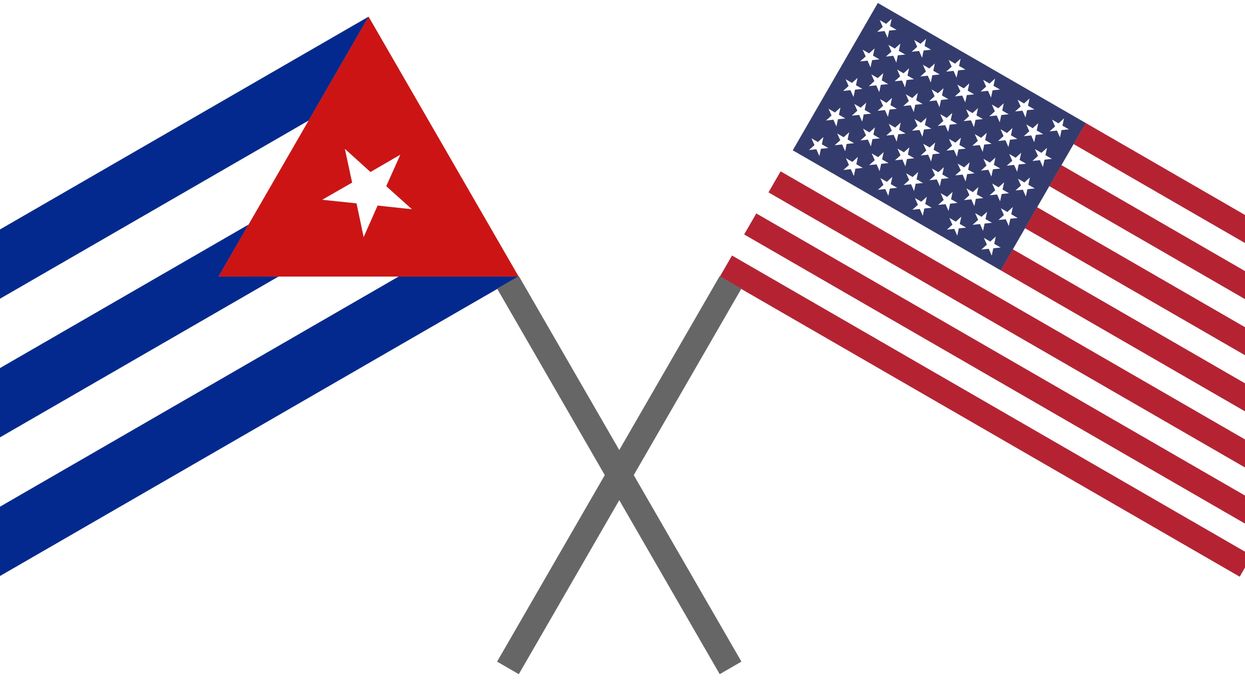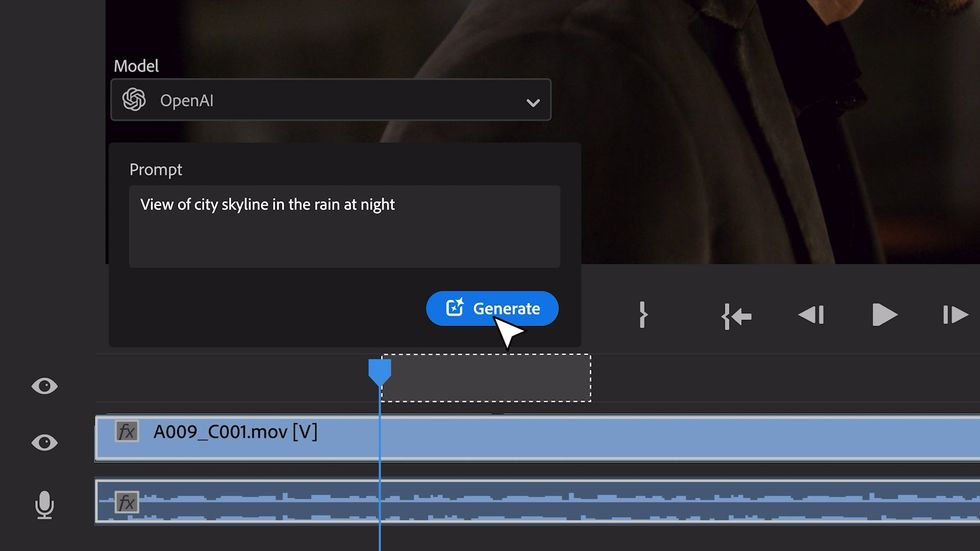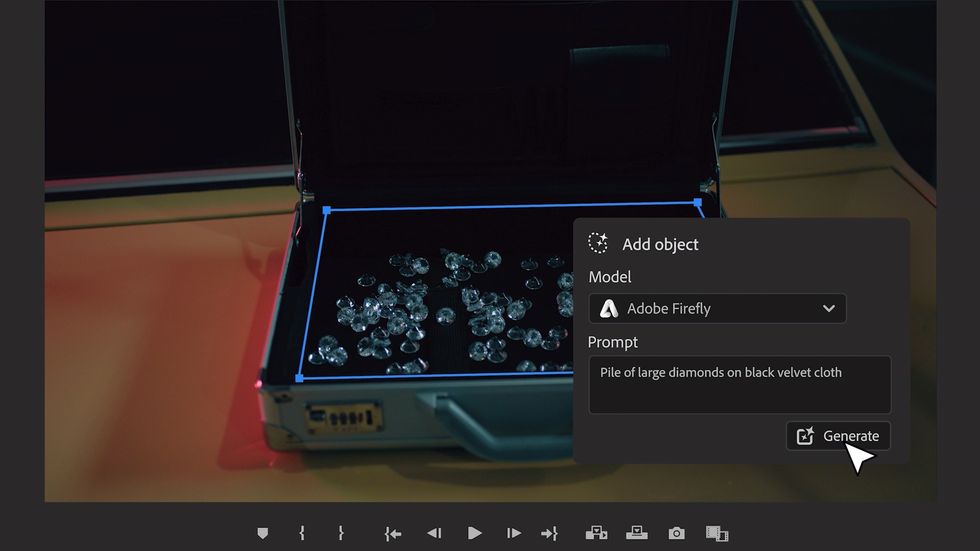Can Americans Make Movies in Cuba Now?
In tonight's State of the Union address, President Obama made the case to congress to end the 50 year-old embargo against Cuba. Does this mean you can film in Cuba now?

President Obama has already used executive action to ease travel restrictions for Americans traveling to Cuba, which will allow individuals (not just approved groups) to buy tickets to Cuba — if they promise their visits are for "legitimate" purposes. These purposes are divided into twelve categories, which include religious, cultural, or family visits (but not tourism). Does filmmaking qualify as an approved reason to travel to Cuba? From my reading of the new literature, including the White House's fact sheet and the Treasury Department's Frequently Asked Questions, only "journalistic" filmmaking, i.e. documentary, qualifies. But it's more complicated than that, so let's listen to Obama's words on Cuba from the State of the Union:
"In Cuba, we are ending a policy that was long past its expiration date. When what you’re doing doesn’t work for fifty years, it’s time to try something new. Our shift in Cuba policy has the potential to end a legacy of mistrust in our hemisphere; removes a phony excuse for restrictions in Cuba; stands up for democratic values; and extends the hand of friendship to the Cuban people. And this year, Congress should begin the work of ending the embargo"
That last sentence is important. After utilizing the powers of executive action to ease travel restrictions, Obama can't repeal the legislation enforcing the embargo without action by Congress. El bloqueo lives on. So where does this leave filmmakers attempting to work in, and with, Cuba? I've never shot anything in Cuba, so I asked for the opinion of filmmakers who have:
Alex Mallis, La Noche Buena
Alex Mallis is the writer/director of the forthcoming autobiographical short La Noche Buena, which was filmed in Cuba and will be hitting the festival circuit soon:
Until 2014, when Papa began shooting, there hadn't been a single Hollywood film shot legally in Cuba since 1959.
Alex Mallis: Currently, it's nearly impossible to legally produce a US-based narrative film in Cuba. The Cuban Cinema Institute (ICAIC) might approve it, but the Treasury Department sure won't. Until 2014, when Papa began shooting, there hadn't been a single Hollywood film shot legally in Cuba since 1959.
Legal productions of any kind require an application for a special license through the Office of Foreign Assets Control. Applications often take a year or more and are often rejected without comment. Journalistic documentaries can try to argue they fall under the auspice of "professional research" and "journalism". But the law is interpreted by OFAC and there is no guarantee you won't be fined. Red Bull was fined nearly $100k this year for shooting a series of promotional documentaries about action sports.
The cinema industry is alive and well in Cuba. Havana is host to one of the most important film festivals in the western hemisphere — and we don't hear anything about it in the US.
Lucy Mulloy and Yunior Santiago, Una Noche
Lucy Mulloy and Yunior Santiago are the writer/director and producer, respectively, of Una Noche, which won best director, actor, and cinematography awards at the 2012 Tribeca Film Festival.
Yunior Santiago, producer: Obama couldn't have made a better move in Cuban policy. This will bring greater economic and political reforms within Cuba faster than many may think. In terms of filming there, I am certain that U.S. Filmmakers have various projects ready to make as co-productions and this move will make it possible, without people having to travel through third countries and risking been caught and facing big fines. Local productions and co-productions will be able to access much needed US technology, from an Alexa Camera to a hard drive or editing equipment. We will see a sharp increase in the import of US technology. I know that Cubans are waiting to collaborate on US-Cuban productions with open arms and mutual respect. 2015 is the year we should expect many productions to start, as everyone I have spoken to wants to film there before big changes happen. Some are afraid Cuba will become too Americanized. I say, Cubans have a strong culture and are very proud of it, and it won't be that easy to change.
My main hope is that life becomes easier for Cubans and that this new era empowers them to further create work to expresses their views and talents.
Lucy Mulloy, writer/director: After spending years making Una Noche in Cuba and having to jump many hurdles in terms of production logistics, I am optimistic about this news. My main hope is that life becomes easier for Cubans and that this new era empowers them to further create work to expresses their views and talents. I have no doubt that it will be easier for people coming in wanting to collaborate on projects. I hope that this will facilitate the cultural exchange that will be so important in making progress in the relationship between Cuba and the U.S.
Nicholas Brennan, Hard Rock Havana
Nicholas Brennan is the director of the short "Hard Rock Havana" (Tribeca 2010), which we profiled on this site, and is currently in post-production on the feature version:
https://www.kickstarter.com/projects/nicholasbrennan/hard-rock-havana
Nicholas Brennan: This was huge and long-awaited news. It's tough to say right now what the full impact of these changes will be because it's all speeches and fact sheets for now, not actual legal regulations. The nitty-gritty news will come once the proverbial sausage gets made in Washington as Obama's words translate to legal guidance.
It's very exciting and welcome news to see a bit of sanity coming to US-Cuba relations and it's a great opportunity to get collaborations started between Cuban and American artists.
The current rules for American documentary filmmakers technically require you to get what's called a "specific license" from OFAC. It's a surreal process that requires producers to clear the project, schedule and crew resumes with a sanction official. If the reporting so far stays true on Obama's announcement, it sounds like this specific license requirement and all the hoops and bureaucratic delays that come with it will be removed. This means that American filmmakers (and American artists of all stripes) will be able to legally travel and produce work in Cuba without having to worry about the American bureaucracy. This all depends of course on what the actual guidance from Treasury says. For now, the old rules apply (I have a production pending right now in the OFAC office and they're still operating on the old rules... they're currently reviewing my DP's resume, to give an idea of the absurdity). All this to say, it's very exciting and welcome news to see a bit of sanity coming to US-Cuba relations and it's a great opportunity to get collaborations started between Cuban and American artists.
The big caveat to all this of course is that these changes have only happened on the US side. American filmmakers will likely soon be able to easily travel legally to Cuba, but getting your gear into the country and producing on the ground there is an entirely different question and maybe a subject for another post. It's all definitely possible and there are several different ways to go about producing there, though it will be interesting to see how Cuba reacts to the increase in non-tourist Americans. For local crew, there's a very talented and growing independent film community in Havana and they have one of the region's top film schools nearby so there's no shortage of capable talent.
Jennifer Redfearn and Tim Metzger, Touch the Light
Academy Award-nominees Jennifer Redfearn and Tim Metzger are the director/producer and producer, respectively, of the documentary Touch the Light, currently in post-production.

Jennifer Redfearn and Tim Metzger: For the past three years, we've been making a documentary film about three blind Cuban women called Touch the Light. We were drawn to Cuba because of its rich culture, complex political history and because the island has been undergoing significant change. And we were looking for an intimate character-driven story that would give U.S. audiences a deeper understanding of Cuban family life. The film was worth fighting for, but it was often difficult to make given the prior restrictions.
To legally make a film in Cuba, U.S. filmmakers will still need permission from the Cuban government and support from one of the Cuban filmmaking institutions.
With the recent changes, Obama expanded the category of general licenses, which don't require a review process. These changes will hopefully make it easier for filmmakers to plan out their productions and travel to Cuba. The Treasury Department will be releasing new regulations in the coming weeks so filmmakers should look closely at these before making travel plans.
But figuring out logistics and permission from the U.S. side is only half of the puzzle. To legally make a film in Cuba, U.S. filmmakers will still need permission from the Cuban government and support from one of the Cuban filmmaking institutions. Both government and non-governmental entities support foreign productions. The Asociación Cubana del Audiovisual supported our work visas for Touch the Light. Obtaining legal permission is particularly important if filmmakers are traveling with a lot of equipment or returning multiple times to follow a long form story.
Easing the travel restrictions will allow more stories to be discovered. In a scene from our documentary Touch the Light, our character Margarita enters a darkened 1950's-era movie theater in Havana surrounded by fellow blind audience members. They're screening the classic Cuban film Lucía by Humberto Solás, accompanied by audio description that allows the visually impaired audience to engage with the film as never before. The blind cinema club shows Cubans' aptitude for ingenuity and social inclusion. It also highlights Cuba's own rich cinema tradition. From a filmmaking point of view, one of the greatest effects of the improving relationship between our two countries will be the increasing cultural exchange and cross-pollination between American and Cuban filmmakers.














